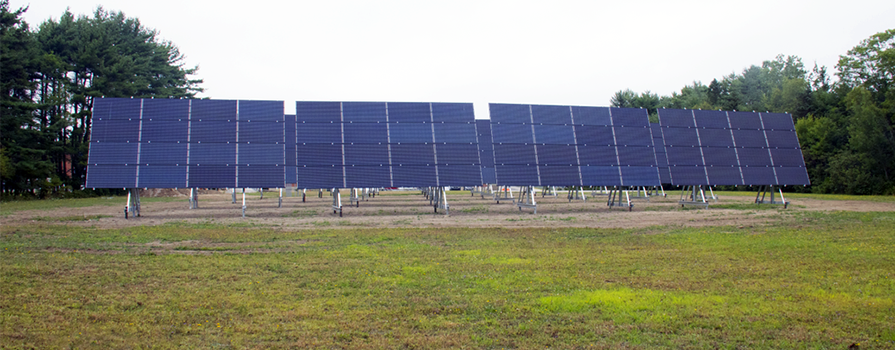Energy and climate change
We recognize the importance of taking action against climate change. We're committed to reducing our carbon footprint, promoting resilience and fostering a sustainable future for generations to come. Climate action is embodied in our education and teaching, research and operations.
Our commitment
In alignment with provincial, national and international climate ambitions, we commit to meeting and exceeding the greenhouse gas emissions reduction targets for Scope 1 and Scope 2 emissions set out in the provincial Environmental Goals and Climate Change Reduction Act.
NSCC has set the following emissions targets:
- 60% reduction from baseline by 2030
- 80% reduction from baseline by 2040
- Net-zero emission from baseline by 2050
Key strategies for achieving our goal include:
- Reduce fossil fuel use through electrification of building systems
- Improve the energy efficiency of buildings
- Reduce energy consumption through education
To date, we've achieved a 47% reduction in greenhouse gas emissions by:
- Upgrading lighting
- Building envelope improvements
- Completing retrofits with high-efficiency building systems
- Installing renewable energy projects across our campuses
Energy
Adding to Nova Scotia’s energy supply
To help Nova Scotia continue its clean energy transition, we’re participating in the province’s Solar Electricity for Community Buildings pilot program. Installing on-site renewables such as solar panels will be a critical part of our organization’s efforts to achieve net-zero operations. We currently have five operational solar panel installations at Lunenburg, Ivany, Strait Area, Shelburne, and Annapolis Valley Campuses which produced 330,635 kWh of renewable energy for Nova Scotia’s electrical grid in the 2022/23 academic year. The Centre for the Built Environment at Ivany Campus has a 39-kilowatt solar array on its roof. 75-kilowatt solar arrays are installed at Annapolis Valley Campus, Shelburne Campus, Strait Area Campus and Lunenburg Campus.

Bidirectional EV charging: A first in Atlantic Canada
We're uniquely positioned to help facilitate an expanded EV charging network across Nova Scotia and have installed 28 charging stations across 9 campuses. We'll continue to work towards our target of having electric vehicle charging stations at all NSCC campuses. We were proud to host the first bi-directional electric vehicle charger in Atlantic Canada (also one of the first across Canada) which was installed at Annapolis Valley Campus in 2021. Read Nova Scotia Power's article, Bidirectional charging: A first in Atlantic Canada.
Reducing greenhouse gas emissions
The following graph depicts the decrease in greenhouse gas emissions by 47% since 2008. It also shows our goal of an 80% reduction in greenhouse gas emissions by the year 2050.

Waste management
With over 10,000 NSCC students entering industry every year, demonstrating good waste management practices to the workforce of tomorrow provides endless benefits for our province. We aim to manage our waste well -- through waste reduction and diversion.
Our waste management goals:
- Improve waste diversion rate from 65% to 75% by 2030
- Reduce waste disposal to 10 kg per person each year by 2030
- Eliminate single-use plastics on campuses by 2030
Tracking Our Progress
We perform yearly waste audits across all our campuses to consistently track our waste reduction and diversion metrics. These evaluations help us keep a tab on these aspects and enable us to sustain our achievements and incorporate suggestions to ensure our waste management program remains successful.
Waste reduction
We monitor the quantity of waste our institution produces to minimize our environmental footprint. This involves tracking the overall waste generated and calculating the amount of waste per individual (including both students and staff) every academic year. Our waste management system monitors the quantity of landfill trash, compost, and recyclables produced and disposed of.
Waste diversion
Through our daily operations, we generate 200 tonnes of solid waste every year. Our recycling and composting programs enable us to divert 65% of this waste from provincial landfills.
Waste management stations
To encourage proper waste sorting practices, the Pack it In - Pack it Out program removes garbage cans from classrooms and offices, motivating students and staff to dispose of their waste in central waste sorting stations.


